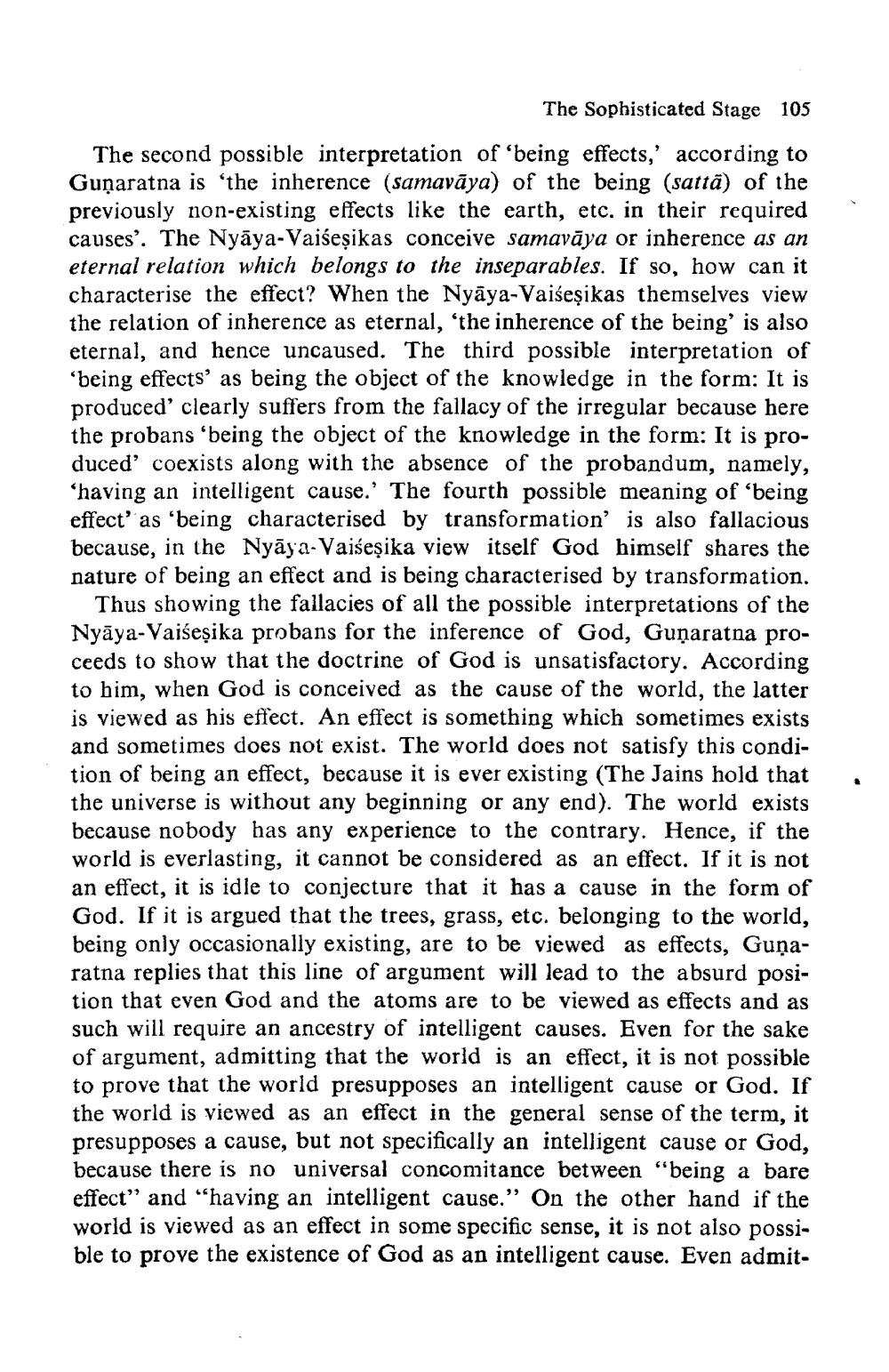________________
The Sophisticated Stage 105
The second possible interpretation of being effects,' according to Guņaratna is 'the inherence (samavāya) of the being (sattā) of the previously non-existing effects like the earth, etc. in their required causes'. The Nyāya-Vaiseșikas conceive samavāya or inherence as an eternal relation which belongs to the inseparables. If so, how can it characterise the effect? When the Nyāya-Vaišeşikas themselves view the relation of inherence as eternal, 'the inherence of the being' is also eternal, and hence uncaused. The third possible interpretation of 'being effects' as being the object of the knowledge in the form: It is produced' clearly suffers from the fallacy of the irregular because here the probans 'being the object of the knowledge in the form: It is produced' coexists along with the absence of the probandum, namely, 'having an intelligent cause. The fourth possible meaning of 'being effect' as 'being characterised by transformation is also fallacious because, in the Nyāya-Vaišeşika view itself God himself shares the nature of being an effect and is being characterised by transformation.
Thus showing the fallacies of all the possible interpretations of the Nyāya-Vaišeșika probans for the inference of God, Gunaratna proceeds to show that the doctrine of God is unsatisfactory. According to him, when God is conceived as the cause of the world, the latter is viewed as his effect. An effect is something which sometimes exists and sometimes does not exist. The world does not satisfy this condition of being an effect, because it is ever existing (The Jains hold that the universe is without any beginning or any end). The world exists because nobody has any experience to the contrary. Hence, if the world is everlasting, it cannot be considered as an effect. If it is not an effect, it is idle to conjecture that it has a cause in the form of God. If it is argued that the trees, grass, etc. belonging to the world, being only occasionally existing, are to be viewed as effects, Guņaratna replies that this line of argument will lead to the absurd position that even God and the atoms are to be viewed as effects and as such will require an ancestry of intelligent causes. Even for the sake of argument, admitting that the world is an effect, it is not possible to prove that the world presupposes an intelligent cause or God. If the world is viewed as an effect in the general sense of the term, it presupposes a cause, but not specifically an intelligent cause or God, because there is no universal concomitance between “being a bare effect” and “having an intelligent cause.” On the other hand if the world is viewed as an effect in some specific sense, it is not also possible to prove the existence of God as an intelligent cause. Even admit




